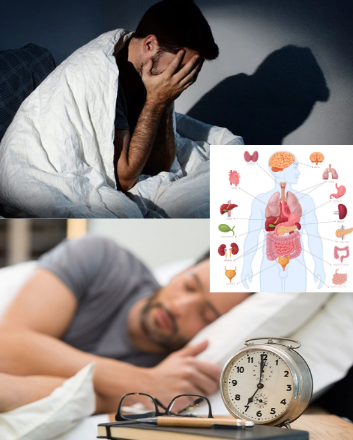
Understanding Sleep Problems
Sleep problems affect millions of people worldwide, and they don’t just leave you feeling tired — they impact your mood, productivity, and overall health. Common challenges include struggling to fall asleep, waking up multiple times during the night, or getting up too early and being unable to go back to sleep. These issues can stem from stress, poor lifestyle habits, or even environmental triggers. One effective first step is keeping a sleep diary to track your bedtime, wake-up time, and any factors that might disrupt your rest. This simple habit can reveal patterns and pinpoint potential causes.
Why Sleep Hygiene Matters
Sleep hygiene isn’t just a buzzword — it’s the foundation of healthy rest. It’s all about creating consistent habits and a sleep-friendly environment. That means going to bed and waking up at the same time every day, keeping your bedroom dark and quiet, and avoiding stimulants like caffeine or nicotine in the evening. Small changes like dimming the lights before bedtime or using blackout curtains can make a surprising difference. By treating your nightly routine as a sacred ritual, you set the stage for deeper, more restorative sleep.
Crafting a Relaxing Bedtime Routine
Your body loves cues. Creating a calming pre-sleep routine tells your brain it’s time to switch off. Whether it’s curling up with a good book, taking a warm bath, practicing gentle stretches, or meditating for a few minutes, choose activities that ease tension. The key is to avoid stimulating tasks — so save that intense TV drama or late-night email check for another time. Think of your bedtime routine as your personal “landing strip” to guide you into a smooth descent into sleep.
The Connection Between Diet and Sleep
Food and drink choices can make or break your night’s rest. Heavy meals late at night, caffeine, and alcohol can disrupt your sleep cycle. On the flip side, certain nutrients actually help your body wind down. Foods rich in tryptophan (like turkey and bananas), magnesium (like almonds and spinach), and melatonin (like tart cherries) support healthy sleep patterns. A light snack such as whole-grain toast with almond butter or a cup of chamomile tea before bed can be a gentle nudge toward dreamland.
Video : Improve your Sleep – 5 Proven Strategies
How Exercise Boosts Sleep Quality
Regular exercise is one of the best natural sleep enhancers. It helps you fall asleep faster, improves sleep depth, and reduces daytime fatigue. The timing, however, matters — high-intensity workouts too close to bedtime can leave you wired instead of relaxed. Ideally, finish your workout at least three hours before sleep. Even low-impact activities like yoga or evening walks can help release tension and prepare your body for rest.
Managing Stress and Anxiety for Restful Nights
Stress and sleep have a complicated relationship: the more stressed you are, the harder it is to sleep — and poor sleep makes stress worse. To break the cycle, focus on stress-reducing techniques such as mindfulness meditation, progressive muscle relaxation, or journaling before bed. These activities calm the mind and shift your focus away from racing thoughts. By addressing the mental clutter, you create space for genuine rest.
Creating a Sleep-Friendly Environment
Your bedroom should be your sanctuary for rest. Aim for a space that’s dark, quiet, and comfortably cool — ideally between 60–67°F (15–19°C). Blackout curtains, earplugs, or a white noise machine can block disruptive sounds and light. Also, don’t underestimate the impact of your mattress and pillows; investing in high-quality bedding is an investment in your health.
Natural Remedies Worth Exploring
For those wanting to skip over-the-counter sleep medications, natural aids can be a gentle alternative. Herbal remedies like valerian root, lavender, or passionflower have been used for centuries to promote relaxation. Essential oils, weighted blankets, and even certain breathing techniques can also enhance sleep quality. However, it’s wise to consult a healthcare provider before starting any new supplement or remedy to ensure safety and effectiveness.
Technology’s Hidden Impact on Sleep
Screens are one of the biggest sleep thieves. The blue light from phones, tablets, and TVs suppresses melatonin, making it harder to fall asleep. Try a “digital sunset” — turn off devices at least an hour before bed, or use blue light filters if you must work late. Replace screen time with relaxing, screen-free activities to help your mind power down naturally.
When to See a Professional
If you’ve implemented healthy habits and still find yourself struggling, it might be time to seek expert help. Persistent issues could signal underlying conditions like insomnia, sleep apnea, or restless legs syndrome. A sleep specialist can provide personalized treatment plans, from cognitive behavioral therapy to medical interventions, to help you reclaim restful nights.
Video : How to Fall Asleep Faster: CBT-Insomnia Treatment
Conclusion: Your Path to Restorative Sleep
Improving your sleep isn’t about quick fixes — it’s about consistent, intentional habits. By focusing on sleep hygiene, creating a relaxing bedtime routine, making smart diet and exercise choices, and managing stress, you set the stage for long-term improvement. Combine these strategies with a sleep-friendly environment and mindful technology use, and you’ll give yourself the best chance for deep, restorative rest. After all, quality sleep is not a luxury — it’s a non-negotiable pillar of good health.


